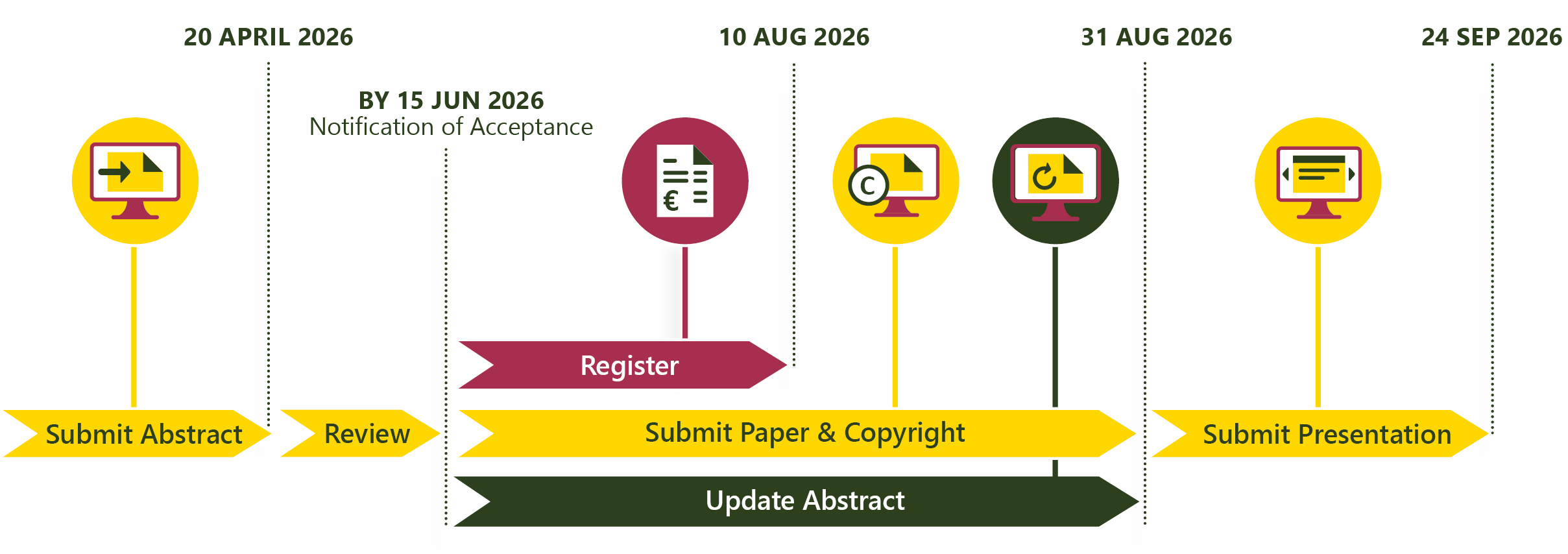Call for Papers
- The Call for Papers has started: Submit your abstract until 20 April 2026
- In-person participation in Berlin is mandatory for speakers and poster presenters presenting their work.
- The full, camera-ready papers have to be submitted online by 31 August 2026 at the latest.
- As the conference language is English, all abstracts and papers have to be written in English.
More questions? Please check out FAQs for more information.
Take Advantage of Major Speaker Benefits
- Receive a discount on the participation fee for speakers and poster presenters.
- Get published in the conference proceedings, featured on IET Digital Library, and IEEE Xplore.
- Papers are submitted for indexing in IET Inspec, Ei Compendex and Scopus
- Network with political influencers, international experts, and practitioners from 20+ countries.
- Gain recognition from leading international experts.
- Share your insights and research findings with peers, creating awareness for your project.
- Inspire with actionable ideas and engage with a global audience.

The papers presented at the 10th E-Mobility Power System Integration Symposium will be published on the IET Digital Library and IEEE Explore, and submitted for indexing in IET Inspec, Ei Compendex and Scopus.
Power System Aspects related to EV Grid Integration
- Power System Experience with EV Grid Integration
- Power System Aspects with High Shares of Charging Stations
- Distribution Grid Issues with High Shares of Charging Stations
- Grid Integration Modelling Aspects
- AI and Machine Learning for Grid Integration
- Operational Resilience in Face of Cyber-Attacks
Charging Infrastructure
- Charging Infrastructure Planning + Smart Charging
- Charging Infrastructure Planning in Distribution Grids
- Charging Infrastructure Planning for Mega Watt/ Truck Chargers
Charging Station Design Aspects
- Charging Methods (AC, DC, Wireless) + Standardization of Charging Modes/Communication
- High Power Charging/MW Charger Design
Vehicle to Grid (V2G)
- Vehicle to Grid (V2G) Experience
- Vehicle to Grid (V2G) and Ancillary Service Participation
- International Rules and Regulations
Grid Code Aspects for Charging Stations
- Grid Code Aspects Related to Charging Infrastructure
- Charging Stations and Grid Forming Aspects
- Communication and Security Aspects
Market, Regulation, and Policy
- Market and Regulatory Aspects
- Mobility as a Service
Decarbonization and Energy Transition
- Decarbonization of Energy Sectors
- Decarbonization of Transport with Green Hydrogen
- E-Mobility and Renewable Energy Integration
Electrification of Transport and Urban Mobility
- Electrification of Urban Mobility
- Other E-Transport such as E-Marine, Shore Power, E-Planes

